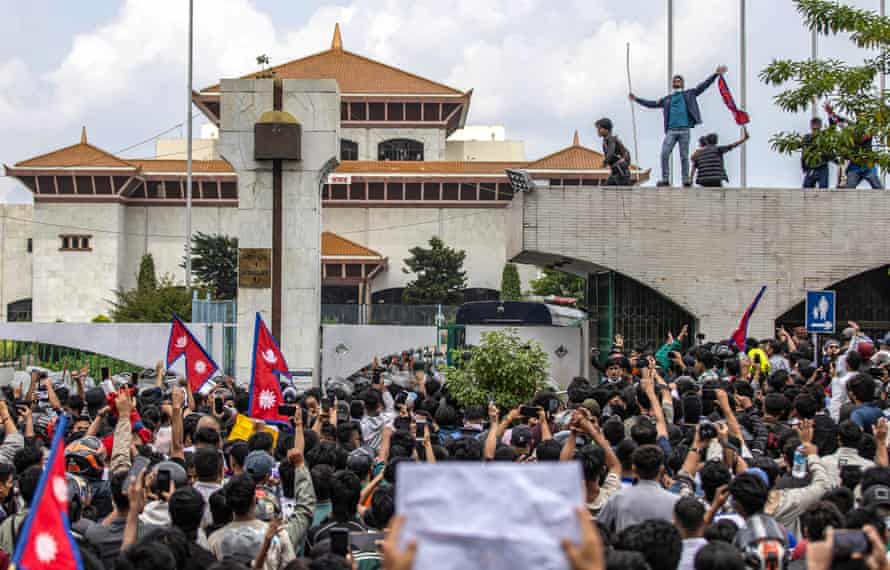Nepal government has lifted its ban on 26 major social media and messaging platforms following nationwide protests in which at least 19 people were killed and more than 200 injured.
The decision was announced late on Monday by Communications and Information Minister Prithvi Subba Gurung, hours after demonstrators surged towards the parliament complex in Kathmandu in defiance of the restrictions.
“We have withdrawn the shutdown of the social media. They are working now,” Mr Gurung said.
The protests, led largely by young people and dubbed “Gen Z” demonstrations, were initially sparked by the ban but quickly grew to encompass wider grievances over corruption and a lack of economic opportunities.
In the capital, protesters broke through barricades and entered the parliament grounds, setting fire to an ambulance. Police responded with water cannon, batons and rubber bullets, while the army was deployed and a curfew imposed. Similar scenes were reported in smaller cities across the country.
Amnesty International accused security forces of using live ammunition, resulting in multiple deaths and serious injuries. “The law enforcement agencies must only use force where absolutely necessary and it must be strictly proportionate to the legitimate aim sought to be achieved,” the organisation said.
Prime Minister KP Sharma Oli expressed sadness over the violence, blaming “infiltration from different selfish centres” for the unrest. His home minister resigned on Monday night in the wake of the killings. The government has formed a committee to investigate the incidents and pledged financial relief for the families of the dead, as well as free medical treatment for the injured.
Despite the lifting of the ban, anti-corruption protests continued into Monday night and resumed on Tuesday morning. Demonstrators carried placards reading “youths against corruption” and accused the government of authoritarian overreach.
The ban had been imposed after major platforms, including Facebook, Instagram, WhatsApp, YouTube, Snapchat, Pinterest, X and Tencent services, failed to register under new regulations requiring them to appoint local compliance officers and establish a point of contact in Nepal.
Officials argued that the measures were necessary to curb the spread of hate speech, fake news, fraud and other online crimes. The government has previously blocked popular platforms, including Telegram in July, and lifted a nine-month ban on TikTok last year after the company agreed to comply with local rules.



